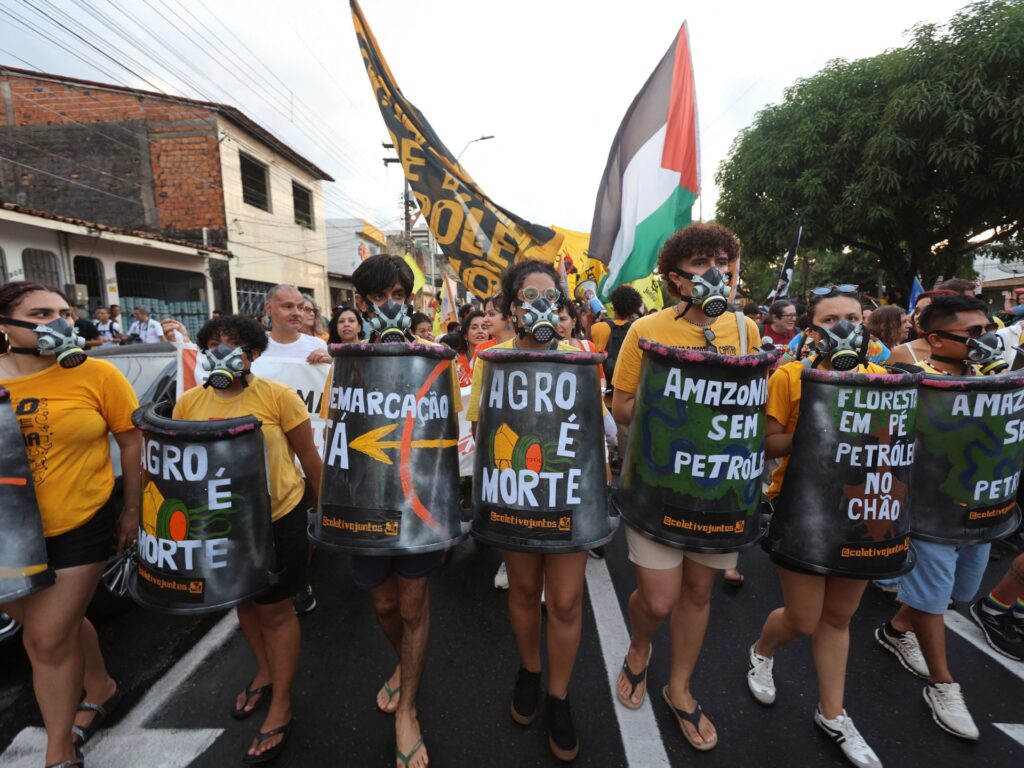Brazil’s new draft proposal does not contain a roadmap for a transition, nor mention ‘fossil fuels’ at all.
Countries remain bitterly divided over the future of fossil fuels as the 2025 United Nations Climate Change Conference, known as COP30, is slated to end in Brazil’s northern city of Belem, potentially in a haze of recriminations.
Delegates at the two-week conference have failed to reach a deal as Brazil circulated a new draft proposal on Thursday that did not include a roadmap to transitioning away from fossil fuels – nor mention the term “fossil fuels” at all.
Recommended Stories
list of 4 itemsend of list
More than 30 other countries from Africa, Europe, Asia and the Pacific co-signed a letter in response, slamming the draft and saying they “cannot support an outcome that does not include a roadmap for implementing a just, orderly and equitable transition” from nonrenewable energy sources.
The commitment to moving away from fossil fuels – including natural gas, coal and crude oil – was considered a landmark achievement of COP28 in Dubai. Even then, the deal stopped short of calling for a “phase-out” amid fierce lobbying from oil-producing countries.
A first draft of the COP30 text, which was publicised on Tuesday, did contain the option of building a roadmap away from such fuels.
But major producers and consumers, including China, India, Saudi Arabia and Russia, rejected the proposal, several news outlets reported, quoting negotiators familiar with discussions.
The United States – which backed a phase-out in 2023 under former President Joe Biden – did not send a delegation to this year’s conference.
US President Donald Trump has long slammed the climate crisis and global warming as a “hoax.”
Another point of contention is climate finance, meaning money to help countries adapt to climate change. Brazil’s newest draft calls for tripling climate financing by 2030 compared with 2025 levels.
But it left unclear who exactly would provide the financing, whether it be wealthy states, the private sector or multilateral development banks. Western countries have historically baulked at providing cash to poorer nations dealing with the worst climate change effects.
Speaking to reporters on Thursday, UN Secretary-General Antonio Guterres said the conference was “down to the wire” and urged countries to “address disinformation aimed at derailing the transition”.
“Communities on the front lines are watching too, counting flooded homes, failed harvests, lost livelihoods,” he added. “They have heard enough excuses.”
Infrastructure, wiring woes
The languishing negotiations were meanwhile interrupted on Thursday by a fire that forced thousands of delegates to evacuate the conference.
Flames erupted in an exhibition pavilion and rapidly spread up the building’s internal shell as attendees finished lunch, lasting about six minutes.
Nineteen people were treated for smoke inhalation, but no injuries were reported, according to event and fire officials.
Delegates have reported various problems with electrical wiring, air conditioning and infrastructure throughout COP30, which is taking place at the edge of the Amazon rainforest.
Thousands of protesters have also marched in Belem to call for Indigenous people and environmental defenders to be heard.
In a joint statement on Thursday evening, the UN and COP30 leaders said the fire site was “safe” and shifted the focus back to the negotiations, which may spill into the weekend.
“We still have substantial work ahead, and we trust that delegates will return to the negotiations in a spirit of solidarity and determination to ensure a successful outcome for this COP,” the statement said.
https://www.aljazeera.com/news/2025/11/21/countries-sharply-split-on-fossil-fuels-on-cop30-climate-summit-final-day?traffic_source=rss


